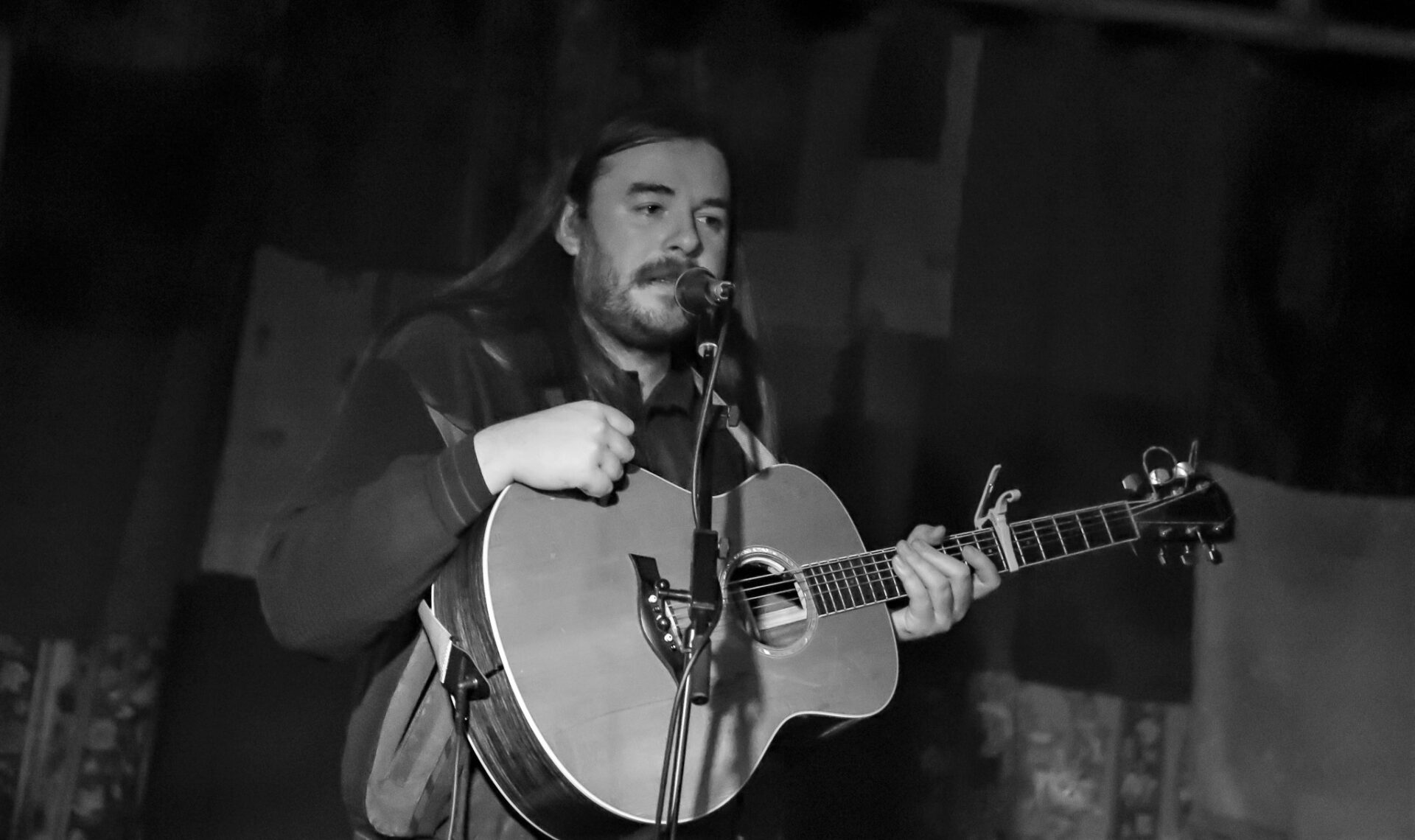When John Francis Flynn describes himself as “a Dublin man, a singer of folk songs and player of windy instruments” he is not only being decidedly matter of fact about his profile but also unduly modest. He fails to make any mention of his undoubted skill as a guitarist, for instance, or the sheer command of his voice, a weather-beaten, resonant beacon of triumph that you fancy is just as powerful bellowing out encouragement at the side of a hurling playing field as it is in the confines of a concert hall.
And then there is the no-little-matter of his exceptional debut album I Would Not Live Always, one of the most sublime and perhaps unexpected records of the past 12 months. Now in his early 30s, John Francis Flynn had served time on his home city’s folk scene for the past ten years, both as the frontman for the traditional band Skipper’s Alley as well as working with the likes of the Irish folk groups Ye Vagabonds and Lankum. But I Would Not Live Always elevated Flynn into another creative dimension altogether as he populated his first solo record with a dazzling array of tunes from West Indian shanties (‘Shallow Brown’) to Napoleonic ballads of war (‘My Son Tim’) and tin whistle polkas (‘Tralee Gaol’) by way of a couple of songs (‘Come, Me Little Son’ and ‘Cannily, Cannily’) written by Ewan MacColl, the leftwing activist and one of the major driving forces behind the UK’s folk revival in the 1960s.

I Would Not Live Always is anchored by the composer, drummer and Tascam four-track cassette-tape loops specialist Ross Chaney and producer Brendan Jenkinson on synths/electric guitar, both of whom are also present and correct tonight where they continue to add atmosphere, texture, and a more contemporary, experimental essence to the more established folk sound. It is not to I Would Not Live Always that the three men immediately go this evening, though, choosing instead to revisit ‘Walking In The Dew’ from Skipper’s Alley’s 2019 album The Oul Fip with the orbital whirr of Chaney’s electronics creating a spectral foundation upon which the man from Marino’s voice positively reverberates.
On ‘Lovely Joan’ John Francis Flynn channels the spirit of Shirley Collins, one of the great voices of British folk music, relocating this ancient ballad into a far more modern space as he does so. Two Ewan MacColl songs ensue, the latter of which ‘The Lag Song’ metamorphoses into a delirious free-form guitar and drums wig-out. The triptych of ‘Bring Me Home’ – on I Would Not Live Always it is split into a three-part suite – appears here in its complete form, ultimately revealing itself as a dark, brooding presence. ‘My Son Tim’ is as stirring as it is unsettling, but the crowning moment of this often quite extraordinary performance is its denouement, ‘Shallow Brown’, in which Flynn, Chaney and Jenkinson levitate the old sea shanty from a deep well of suffering onto some higher transcendental plane.
Photos: Simon Godley




